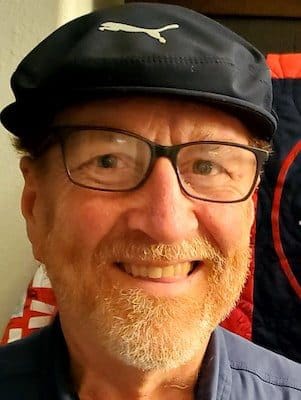I found out early Monday morning that Phil Lineberger, pastor of Sugar Land Baptist Church in Sugar Land, Texas, had passed away.
Such news caused me to reflect on his life and my own aging process. One of the things that I would want said at my funeral is that I was one of Phil’s 10,000 closest friends.
I met Phil in 1989, when he was pastor of a megachurch in the Dallas area and president of the Baptist General Convention of Texas.
He flew to tiny Groom, Texas, and preached at my first church. That impressed me. It would be impossible for me to tell my history as a pastor without telling the story of Phil Lineberger.
The same could be said of the Baptist General Convention of Texas in the last quarter century.
Phil grew up in poverty. More specifically, he grew up in Bowie Courts, a government housing project in Texarkana, Texas.
He regaled his grandchildren with stories of “little papa” and what it was like to grow up poor. That poverty drove him to make his mother proud and to make an impact on the world.
He was tall, athletic and a natural leader. He was an Arkansas Razorback and had a chance to have a future in collegiate athletics in either coaching or managing. He chose ministry and seminary.
Phil attended Southwestern Baptist Theological Seminary and was on the staff at Travis Avenue Baptist Church in Fort Worth, Texas, when the beloved pastor was James Coggin.
When Coggin had health problems, Phil was called to preach in his absence. Sometimes he would find out on Sunday morning that he was preaching that day. He would tell young pastors like me to always have a sermon in your back pocket – just in case.
After pastorates in other states, Phil moved back to Texas. His pastorates in Texas were concurrent with the convention controversy between fundamentalists and moderates.
Phil was a biblical conservative and a moderate. One friend called him a “happy warrior.”
Even though this controversy made some pastors angry and even mean, Phil never lost his infectious smile and engaging personality. He led Texas Baptists through its darkest days.
He wore a bulletproof vest to preach his convention sermon. When he retold the story of that day, he would begin laughing uncontrollably.
He claimed that he had security guards posted underneath the stage to bang on the floor with their nightsticks to rattle his good friend, Billy Ray Parmer, as he stood at the rostrum.
Billy Ray was presiding because Phil wanted to speak to the motion from the floor during a crucial vote involving Baylor University.
Phil had a great sense of humor. He came to Crockett, Texas, to play golf with me and some other pastors. He pulled out a huge cigar on the first hole, and I told him it made me uncomfortable. He put the cigar away.
After 18 holes, he spotted women playing bridge in the clubhouse. He lit his cigar and said that he was my mentor. He let them know if they ever needed me to lighten up a little to just call him, and he would take care of it.
When Bill Pinson retired as the executive director of the BGCT, many of us felt like there was only one choice. When I heard they had offered Phil the position, I was elated.
I spoke to Phil and sensed he was wavering. I invited him to dinner and told him I felt it was his duty and legacy to accept the position. I think I even used the words “manifest destiny.” I was well prepared with quotes from Lincoln, Churchill and MacArthur.
Phil told the committee a few days later that he could not accept the position. He would later tell people of the “crazy man” who tried to appeal to ego to accept the position. I was that “crazy man.”
I never knew exactly why he said no. I have three theories.
One was his love of the pastorate. He was a convention leader, but his true love was his congregation. I also wondered if he wanted to protect his family from the grief that convention politics would inevitably bring.
Lastly, I think Phil would have taken the position if more moderates had embraced his nomination. Phil made people nervous. He was a man of conviction, not of convenience.
Phil was a pastor first and foremost. He loved his congregation. He was also a pastor to pastors. He was my doctoral supervisor. I had always thought somehow he would preach my funeral one day. I never thought about our age difference. I just wanted him to be my pastor.
I thought Phil would say words over me one day, as he had done for Billy Ray Parmer, John Petty and others. That will never happen now.
I pray for Phil’s wife, Brenda, his three children and 10 grandchildren.
Years ago, I watched as a young pastor’s wife asked Brenda what it was like to be married to a man who was that handsome. She just rolled her eyes and smiled.
My loss is nothing compared to his family’s grief. I only know that there are 10,000 close friends like me who are struggling to process the loss of a man who was larger than life.
 Ed Hogan is pastor of The Path to the Cross Church in Houston, Texas, and is a board member of the Baptist Center for Ethics. He blogs at The Path to the Cross. You can follow him on Twitter @PastorEdCypress.
Ed Hogan is pastor of The Path to the Cross Church in Houston, Texas, and is a board member of the Baptist Center for Ethics. He blogs at The Path to the Cross. You can follow him on Twitter @PastorEdCypress.

